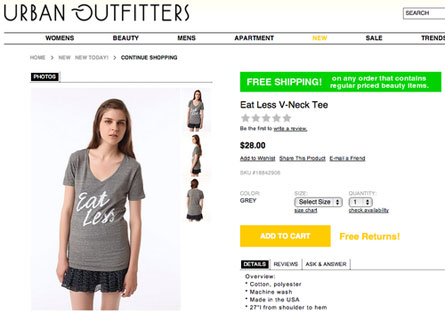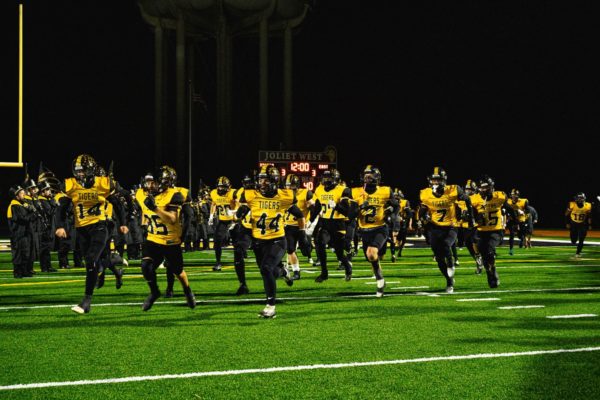Messages on apparel gone too far

Shirts like this, which have caused people to protest the company, are featured on the Urban Outfitters online website
October 31, 2014
Popular clothing companies such as Zara, Urban Outfitters, SM, and Nike often come under fire due to media uproar of their “offensive” clothes. From articles of clothing resembling past tragedies and t-shirts making light of serious subjects from self-starvation to rape, these companies are certainly pushing the limits.
In August, Zara designed a shirt with strips and a gold star at the shoulder, resembling the uniforms inmates wore in concentration camps. In 2007, Zara also had a purse with an “accidental” swastika along the seams of the bag. Most recently, Urban Outfitters released a Kent State sweater with blood red stains across the item referencing the university’s school shooting in 1970. The company also sells t-shirts with designs reading “Eat Less” or “Depression”. In 2013, Nike released a shirt with “Boston Massacre” displayed on the front of the shirt, media immediately picked up on the reference to the Boston bombings in April of that year. SM Supermalls, a chain of malls in the Philippines, retailed a shirt with writing reading “It’s not rape, it’s a snuggle with a struggle.” All of these items have caused media to be furious with these companies, forcing the companies to either release an apology or recall the items.
Are these companies taking it too far? Do they really make these items for the satisfaction of their customers or just for media coverage? English and Drama teacher Mrs. Blake comments on the fashion controversies, “Fashion designers have increasingly been trying to push the boundaries with their clothing lines. But humor, shock-value, or a chance for enhanced media coverage shouldn’t take precedence over morality.” Joliet West student Rachel Bartolo agrees with her,” There shouldn’t be shirts like that in the first place, they make fun of situations that shouldn’t be funny.”
Although countless accounts on Twitter, Facebook, and Instagram criticize these companies for releasing such items, the products remain popular and are still being purchased. Which also beings up the question, are the customers just as guilty as the companies they buy from? The clothing may mock certain sensitive subjects, but there are also an ample amount of accounts on social media that joke about the very same topics. Yet most of these accounts don’t get shut down, nor reported. These accounts still receive likes, retweets, and favorites for content that may be “offensive” to others.
Media seems to choose which outlet is appropriate to make light of these sensitive subjects. Choosing that it is acceptable to mock illness, domestic abuse, racism, and tragedies on the Internet, while it is completely improper for companies to make clothing addressing the same matters.






